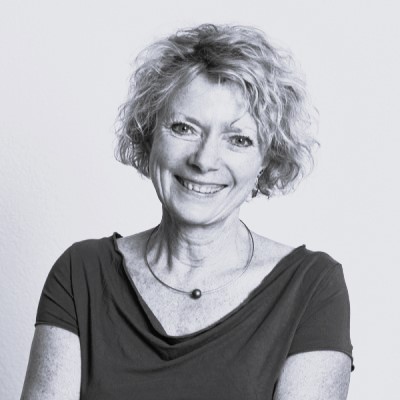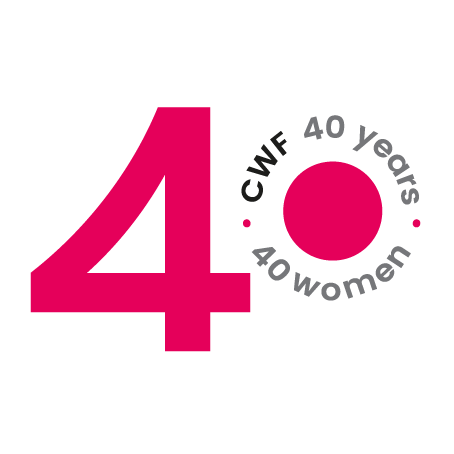

Melissa Davies – Negotiation specialist and Solution Focused coach, Founder of negoservices
40 years – 40 women * Theme: Solidarity
As a professional independent negotiator, Melissa Davies has over 28 years experience in negotiating agreements and building lasting partnerships in both national and international environments, and in training in negotiation skills and conflict management. She founded negoservices in 2000, a Swiss-based company specialised in negotiation skills, conflict management, as well as professional and personal development.
In this interview, Melissa told us that her choice of life has been mostly determined by her love of mountaineering and nature, and by her deep commitment to her work. Melissa is also a member of two mountaineering clubs in which she is very active with teenagers and young adults. She is interested in sustainable development and social issues, and volunteered for several years as a senior partnerships officer for Norlha, a grass root NGO involved in sustainable development projects and empowering women in the Himalayas.
As part of our #40years40women project, it is a pleasure for us to interview such an amazing woman.
Who are you in a few words ?
My name is Melissa.
I live by choice in an old wooden barn in the mountains.
My choice of life has been determined by my love of mountaineering and nature, and by my deep commitment to my work.
A sociologist and criminologist by training I worked as a manager in several large companies before following my values and working in non profit organisations and later in science.
For the last 30 years I have become a specialist in sustainable negotiations and partnership building. I am also a solution focused coach and a trainer in self-leadership. My first book was published end 2021.
I am currently being trained in psychosocial wellbeing in peace building, which is coherent with all I teach in terms of self-leadership, self-awareness and self-confidence.
I am convinced that to be a good leader of others, one needs to be a good leader of oneself, whether in a business environment, a family, society…
What are the ingredients of your success ?
Drive, optimism, resilience, energy, a thirst for learning, curiosity and several really tough times that have taught me a lot. Both my parents were incredibly passionate and resilient and probably sowed some deep seeds in me.
I have also been highly influenced by many encounters and travels.
What would you do differently if you could?
I find this difficult to answer as both my training and my spirituality have taught me to be happy with what I have and who I am – and to be honest that is the way I feel.
One thing I would have done differently maybe would be to have spent more time laughing with my children: when they were young I was a young female manager in a demanding environment, and as such my work took a lot of energy. At the same time, this all made me who and what I am.
What is the best advice you would give to women who want to develop professionally OR the best advice you received?
Believe in ourself, develop a strong core and stay open to others, keep your feet firmly in reality and your mind in the stars: to be successful ideas and creativity are important. And never stop learning and moving. Things may not work today, but who knows about tomorrow?
And remember that life balance is just that: a balance between different aspects of your life. I used to have an incredible drive for my work in business, and company goals became quite important to me. I was lucky that some physical issues cascaded through my life like a tzunami and triggered some serious thoughts about my values and what place in my life did these values have. This realisation led me to change many things.
How does the word Solidarity resonate with you, what does it evoke?
That everyone and everything is interconnected, and that solidarity is what enabled us to survive, from when we were hunters and gatherers to our current societies today. Solidarity is caring, solidarity is sharing, solidarity is realizing we are all part of this huge universe and that together we fare a lot better than alone – as evolution shows.
Solidarity exists because we cannot « do it alone ». Someone I admire deeply – Nelson Mandela, once said “If you want to make peace with your enemy, you have to work with your enemy. Then they becomes your partner”
What are the reasons that motivate you to get involved in the field of Solidarity?
My parents worked in the humanitarian and social fields, which gave me a strong awareness of inequalities. Being a highly sensitive person I was very touched by stories of those in needs, and wanted to help. When I mentioned to my Mother my wish to work in the humanitarian sector, she advised me against it because – she said – I was too much of a saint Bernard and would want to “save the world”. With hindsight she was right. When I went to work this year in BidiBidi refugee settlement (northern Uganda, some 250’000 refugees over 250km2) in conflict transformation and peace building processes, I realised how right she was. Being strongly anchored in who I am and what I can do enabled me to give, to receive, to share without drowning in emotions as the complexity of the challenges are so important. This was a dream that took some time to become reality, and remains one of the most intense, fascinating and worthwhile experiences in my life. I am far richer now than before I left.
How do you see the world of Solidarity and you within evolving in the future?
A lot of people and organisations involved in Solidarity projects have hidden agendas (to make the self feel good, to feel less guilty, or to exchange solidarity programs against some juicy contracts…)
I believe the need for Solidarity has always existed and will always exist. Sadly, our wealthier societies lead many to believe that materialism and money can replace Solidarity, and that “we do not need one another”. As recent years have shown us, it is a fallacy to believe we can “do it alone”, and that we do not need one another to survive and thrive.
What is the message you would like to share with women around Solidarity?
If we take Solidarity as helping one another, then please do so, as Solidarity is linked with humanity. This is fundamental. And that it is first a mindset.
And to always remember you cannot give what you do not have. It starts within … and then radiates out.
